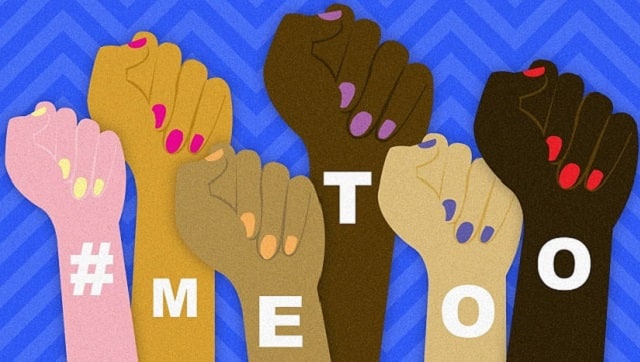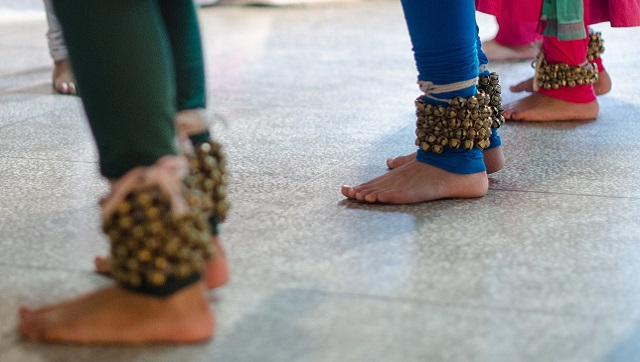In September 2020, we came across the shocking news of two senior gurus of Bhopal’s Dhrupad Sansthan being accused of sexual harassment by a group of students. Two years ago, the #MeToo movement had disrupted the normally serene musical existence of the sabhas in Chennai. Now, sexual harassment charges [in the classical arts sphere] have travelled north. On 15 December, a complaint of sexual harassment was registered at the Chanakyapuri Police Station against a guru from the prestigious Kathak Kendra, the National Institute of Kathak Dance. The police arrested the accused the very next day. While the director of the Kathak Kendra claimed that the police acted before he could, the Kendra’s parent body — the Sangeet Natak Akademi, the National Academy of Performing Arts — has stayed silent on these developments. Students the world over aspire to join the Kathak Kendra — the Bolshoi of Kathak — and be trained by its renowned gurus. While internally there have been whispers of all not being well at the Kendra, thanks to the grip of patriarchy and a culture of silence, no one has raised their voice, let alone pressed charges. Dancers’ bodies are expected to be docile and pliant, and most live up to those expectations. A conservatory type scenario expects increased docility as they have to produce efficiency, normalisation and standardisation of dance aesthetics. Those who were unable to stay silent, for any reason, including when sexually intimidated or harassed, may well have been shown the door. The complainant in this most recent case is a 23-year-old student, who is aware of her rights and willing to assert them. However, it could not have been easy to call out the alleged perpetrator — her pakhawaj guru at the Kendra, where she has been a student for 11 years. At the Kendra, dancers learn and are tested on allied arts as well. The complainant had been training under this particular guru for two years. The allegations against him range from offensive acts like unwanted touch to egregious sexual misconduct, involving sexual assault. I spoke with Asiya Shervani, an interpersonal ethics advisor, who has extensive experience in organisational culture, policies and practices, specifically prevention and remediation of sexual and gender-based misconduct. She highlighted the long-term adverse impact of what we have normalised as low-grade indignities and everyday sexism that a woman is expected to take in her stride. “Women who are exposed to such behaviour, especially from a person in authority whom they are expected to trust or obey, are likely to develop low self-esteem physical ailments like sleep disorders, panic attacks and/or psychological disorders like PTSD, depression, anxiety and chronic stress,” noted Shervani. Read on Firstpost: Thoughts on a conversation on sexual harassment in the arts, and making sense of traumas buried in the past When the complainant informed the director of the Kendra about the alleged misconduct, he said he was unavailable to meet her. This response seems surprising since this alleged harassment had happened on government property, at a government-run institute of which he is in charge. The Sexual Harassment of Women at Workplace (Prevention, Prohibition and Redressal) Act 2013 is a strong law enacted after long deliberations in Parliament. What then were the director’ thoughts? In any case, the complainant still sent him an email informing him of what had transpired, and then went to the police. As mentioned previously, when the guru was arrested, the director said it was before he had a chance to act. The chance for directors to act, according to the law, is not after a complaint has come in, but way before. Shervani, who advises boards and the senior management of several institutions (governmental and non-governmental), associations, collectives and organisations (for profit and not-for-profit), observed that “management and heads of learning centers are responsible for creating a psychologically safe environment for all, especially students. It is their job to take all possible reasonable steps to remove conditions which make power-play, sexism, sexual and gender-based harassment possible. They are responsible for ensuring that they take preventive measures and eradicate mindsets and behaviours, which are abusive, regressive, feudal and patriarchal”. [caption id=“attachment_9168441” align=“alignnone” width=“640”]  Illustration © Namaah K for Firstpost[/caption] The Prevention of Sexual Harassment (POSH) Act places the accountability unambiguously on managements and employers. They should be taking action before sexual harassment happens, and “if despite their sincere, genuine and continuous preventive work, sexual harassment is still reported, they are liable to take immediate and appropriate action, which would mean that the internal committee must conduct a thorough and detailed investigation,” added Shervani. When are these committees to be formed? I asked. “These committees should have been formed in 2013, when the new law was enacted!” she said. “[The committees] should be fully trained and functional and ready to conduct an investigation as and when needed.” It’s honourable that the director has said he will cooperate with the police (which, as per law, he is duty-bound to do). However, it has to be pointed out that by not having a trained internal committee in place, and by not creating awareness about sexual harassment and its various forms, and by not putting in place a credible, trained prevention and redressal committee, the director of Kathak Kendra as well as the directors/head of institutions of other such art centers have failed in fulfilling their legal responsibilities. Talking about institutional failures, one is compelled to ask how the Kathak Kendra views its two responsibilities of prevention on the one hand, and redressal on the other. We know from reports about the Dhrupad Sansthan case that the internal committee was set up post facto and flouted rules. The committees should be fully functional whether or not there is a complaint. They should not be formed after a complaint is made. How can a committee formed in a hurry, without following the rules laid down by law, be expected to provide any justice? The presiding officer of the committee has to be a senior woman from the organisation and it is mandatory to have an external third party member, a practitioner in organisational sexual harassment. Asiya Shervani, who fulfils this role in many institutions, explains that “the committee needs to be trained on not only investigation procedures, but psychological, ethical and sociological aspects that need to be considered when analysing a sexual harassment complaint.” The best organisations are investing time and effort in deep work. Even unstructured, geographically dispersed and “temporary” organisations such as film festivals, events, art exhibitions and projects reach out to consultants like Shervani for awareness workshops and for help with forming project-based complaint committees which can oversee any complaint and pre-empt/prevent sexual misconduct. “Those who are sincere will find ways to comply with the letter and the spirit of the 2013 Act, whereas those who want to find ways to avoid challenging the status quo, will make excuses. I’ve come across both kinds of people. Fortunately the youth are aware of their rights and the days of those who make excuses and those who enable sexual misconduct are numbered. #MeToo has given women a vocabulary to describe the specificities of their experiences as well as the confidence to speak their truth,” said Shervani. In just the sketchy details regarding this most recent case that have emerged in the public domain, there is so much which is deeply disturbing and which, to be truthful, we are not hearing for the first time. Sexual Harassment as defined in the 2013 Act as well as IPC (Section 356A) includes not only physical advances but sexual innuendoes, unwanted compliments, demand or requests for sexual favours, showing or disseminating pornography or objectionable images, and pointedly lewd gestures. Do perpetrators absorb anything from the discourse around sexual harassment in the arts? Do they know about all these rules and yet decide to break them because they view themselves as above the law? Shervani confirmed my thinking that a sense of entitlement and an exaggerated self-importance are traits that are common to many perpetrators in cases she has investigated. She emphasised, however, that there are contextual factors at play as well. Sexual harassment rarely occurs in vacuum. It needs a support system, and ‘enablers’ — those who turn away, refuse to speak up, and continue supporting perpetrators in targeting victims and retaliating against those who raise their voice. Enablers are among the main reasons why it is extremely hard to fight sexual harassment. It is these enablers who play a major role in creating a culture where sexual harassment is normalised and where it is extremely easy for the perpetrator to continue his behaviour unchecked. Shervani asserted that “all those managements who fail to form redressal/grievance committees, who refuse to organise awareness workshops and deny a safe environment to women and other vulnerable team members, are enablers of sexual harassment. They are the ones who need to be called out. As long as they exist and as long as they continue to have zipped mouths, we cannot get rid of perpetrators. Perpetrators would not survive a day if there were no enablers. I want each survivor to know that it’s not only the harasser who wronged them — each silent spectator is also a perpetrator.” The complainant in the most recent Kathak Kendra case has shown unusual courage in speaking up. It is important for all those who are stakeholders in the future of our magnificent and unparalleled arts, to stand up with her to offer her the encouragement and support she needs. “It’s about time that we learn to place the blame where it belongs,” Shervani concluded, “on the person who harasses, the systems that allow it, people who enable and justify it or turn their face away from it or retaliate and vilify those who decide to address it.” Arshiya Sethi, PhD, is a scholar and commentator on the classical arts. Follow her work on her website.
Enablers are among the main reasons why it is extremely hard to fight sexual harassment. It is these enablers who play a major role in creating a culture where sexual harassment is normalised and where it is extremely easy for the perpetrator to continue his behaviour unchecked.
Advertisement
End of Article


)
)
)
)
)
)
)
)
)



